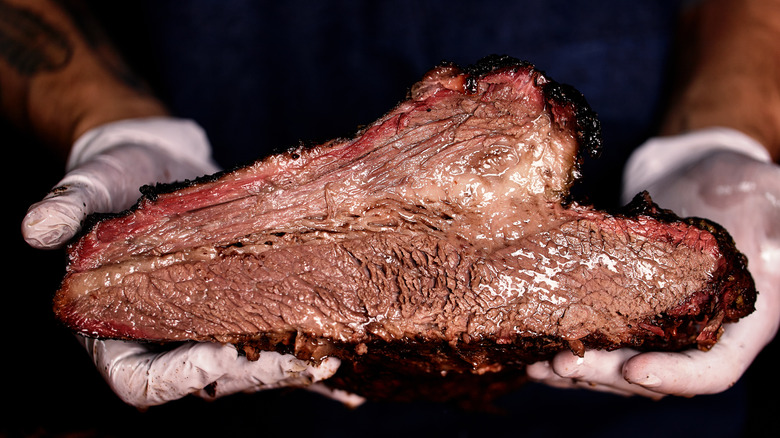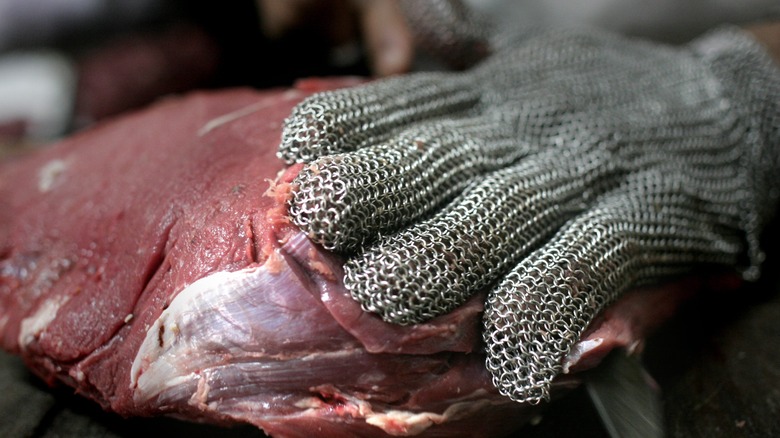The 2 Top Kosher Barbecue Misconceptions You Should Leave Behind
Barbecue spans the globe, filling mouths and bellies with meats, sauces, and spices galore. In the continental U.S. alone, there are four major regional barbecue styles, including Kansas City, Carolina, Memphis, and Texas-style barbecue. Internationally, Korean barbecue, Australian barbecue, Japanese Yakitori, and South African Braai, are just some of the barbecue styles out there. When it comes to a rough definition of what constitutes barbecue, it's the process of slowly cooking meat over a heat source, which is typically live fire. Based on where you live and the style you prefer, live fire cooking may look like using a pellet grill, charcoal, or wood smoker. Not only is barbecue a process of cooking, but it's also a chance for pitmasters to infuse their culture and heritage into their food.
Another approach that might not be as well-known is kosher barbecue. Some Jewish people keep kosher, following a set of dietary restrictions practiced in the Jewish religion. One of the most well-known tenets of keeping kosher is the separation of milk and meat. This means that dairy and meat cannot be cooked or eaten together, so no cheeseburgers or chicken fettuccine alfredo. For those who have never eaten kosher barbecue, there may be some questions and misconceptions regarding the details.
Kosher barbecue doesn't require a rabbi's blessing
The kosher approach to barbecue has taken off, with San Antonio hosting its eighth annual Texas Kosher BBQ Championship. However, one thing to note is that the term "kosher" does not describe a cooking style. Rather, it involves Kashrut, aka Jewish laws that dictate what food is okay to eat based on how it was prepared or processed. But people could have a certain image in their minds of what that means when a restaurant advertises "Jewish-style" barbecue. Food & Wine spoke to pitmasters who dispelled two misconceptions about kosher barbecue.
The first is that a kosher brisket tastes different than a non-kosher one. Mendel's Backyard BBQ & Brew co-owner Rabbi Mendel Segal said that this should not be the case. The second misconception is that kosher means that food is blessed by a rabbi. But, in accordance with Kashrut, the animal has to be killed by a trained professional called a shochet. Prior to being slaughtered, split-hooved animals that munch on cud qualify as kosher. Birds that are deemed "clean" can also be consumed if slaughtered properly. Obviously, whole hog barbecue is a no-no, as is the use of dairy with barbecued meat.

